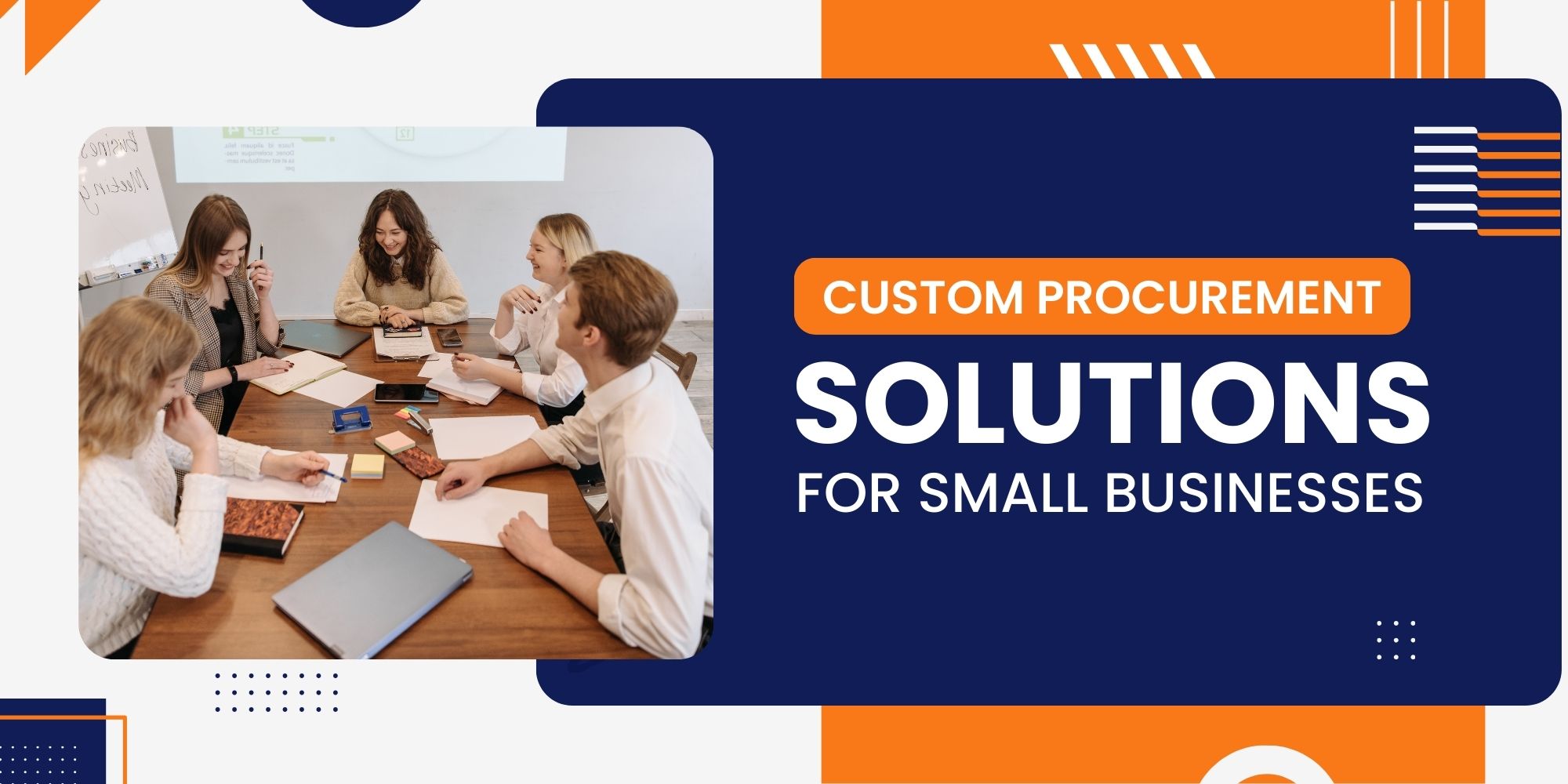Welcome back, everyone! Grab your favorite drink and settle in as we explore how custom procurement solutions can help small businesses save time, cut costs, and streamline operations. In today’s fast-moving market, efficient procurement isn’t just a luxury—it’s a necessity. From supplier selection to automated purchasing, small businesses need tailored strategies to optimize spending and maintain a competitive edge. Whether you’re looking to improve vendor relationships or implement smarter purchasing practices, the right procurement approach can make all the difference.
Short on time? Don’t worry—there’s a quick summary at the end!
In today’s fast-paced market, small businesses need efficient and cost-effective procurement strategies to stay competitive. Unlike large enterprises with dedicated procurement departments, small businesses often face challenges such as limited budgets, supplier management complexities, and fluctuating demand. That’s where custom procurement solutions come in—offering tailored strategies, automation, and vendor relationships to optimize purchasing and boost operational efficiency.
Why Small Businesses Need Custom Procurement Solutions
Procurement isn’t just about buying goods and services—it’s about getting the right products at the right time and cost while maintaining strong supplier relationships. Small businesses must navigate unique challenges, including:
- Budget Constraints: Finding affordable yet high-quality suppliers.
- Limited Resources: Managing procurement with small teams.
- Supplier Reliability: Ensuring consistency in supply chains.
- Compliance & Risk: Avoiding supplier fraud and legal issues.
By implementing custom procurement solutions, small businesses can streamline purchasing, reduce costs, and ensure smooth operations.
Key Elements of Custom Procurement Solutions
1. Strategic Supplier Selection
Choosing the right suppliers is critical for cost efficiency and product quality. Small businesses benefit from customized vendor evaluation criteria, including:
- Pricing and discounts tailored to small business needs.
- Reliable delivery timelines to prevent stock shortages.
- Flexible contracts that accommodate growth and market fluctuations.
Example: A boutique coffee shop partnered with a local coffee bean supplier that provided lower minimum order quantities and a flexible pricing structure, allowing them to scale their orders based on demand.
2. Automated Procurement Systems
Manual procurement processes are time-consuming and prone to errors. Implementing procurement software helps small businesses:
- Automate purchase orders and invoicing.
- Track inventory in real-time to avoid overstocking or shortages.
- Analyze spending patterns to optimize future purchases.
Example: A small e-commerce store integrated a cloud-based procurement system to automatically reorder fast-moving inventory, reducing stockouts by 40%.
3. Negotiation and Cost-Saving Strategies
Effective negotiation is key to reducing procurement costs. Small businesses can leverage bulk purchasing, early payment discounts, and long-term supplier relationships to get the best deals.
- Group buying with other small businesses to access bulk discounts.
- Negotiating extended payment terms for better cash flow.
- Exploring alternative suppliers to compare pricing and service quality.
Example: A small tech startup secured a 10% discount on office supplies by committing to a long-term supplier contract.
4. Sustainable and Ethical Sourcing
Consumers today value businesses that prioritize sustainability and ethical sourcing. Small businesses can implement eco-friendly procurement practices, such as:
- Partnering with local or fair-trade suppliers.
- Choosing recyclable or biodegradable packaging.
- Reducing waste through smarter inventory management.
Example: A small clothing brand sourced organic cotton from sustainable farms, boosting its brand reputation and attracting eco-conscious customers.
5. Data-Driven Decision Making
Using analytics and reporting can help small businesses make better procurement decisions. Tracking key metrics such as supplier performance, cost trends, and order accuracy can lead to:
- Improved budget forecasting and cost control
- Identification of inefficiencies in the supply chain
- Better planning for seasonal demand fluctuations.
Example: A family-owned restaurant used procurement data to identify a supplier with a 20% lower cost for fresh produce, saving thousands annually.
Custom procurement solutions help small businesses optimize spending, improve efficiency, and build reliable supply chains. By leveraging automation, smart negotiation, and ethical sourcing, small businesses can compete with larger players while staying agile and cost-effective.
Want to enhance your procurement process? Start exploring customized procurement strategies today and transform the way your business operates!
TL;DR: Small businesses need custom procurement solutions to manage costs, streamline purchasing, and improve supplier relationships. By leveraging automated procurement systems, strategic supplier selection, cost-saving negotiations, and data-driven decision-making, businesses can optimize spending and enhance efficiency. Sustainable sourcing also boosts brand reputation. Implementing the right procurement strategy ensures better cash flow, reduced errors, and long-term growth.
Hope you enjoyed this post! While you’re here, why not check out a few of our other pieces? We have several blog posts on HR, Cloud Technologies, Salesforce CRM, AI, Salesforce CPQ, Zoho, Bitcoin, Cybersecurity, AWS, and many other topics we just know you’ll love. Browse the topics here!




